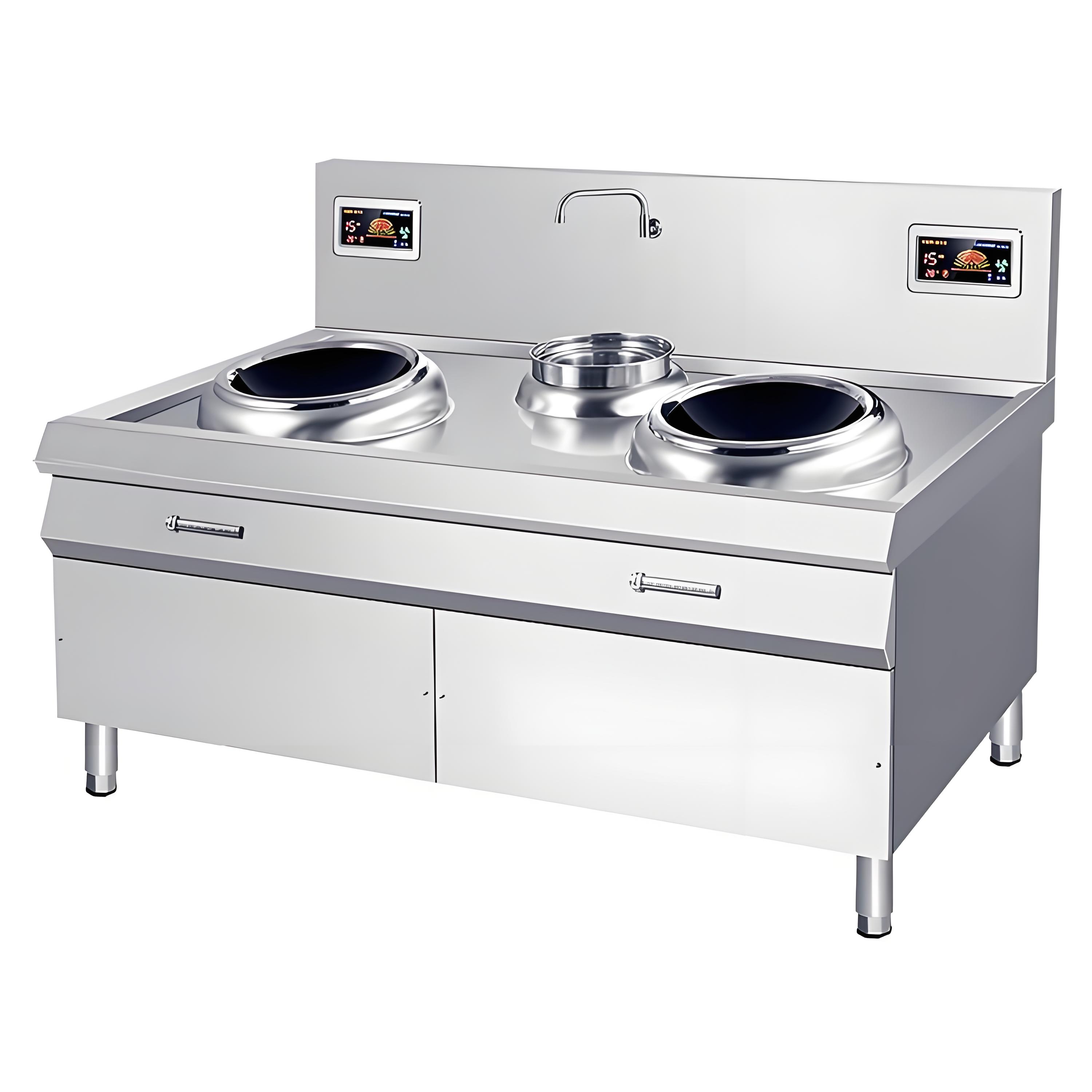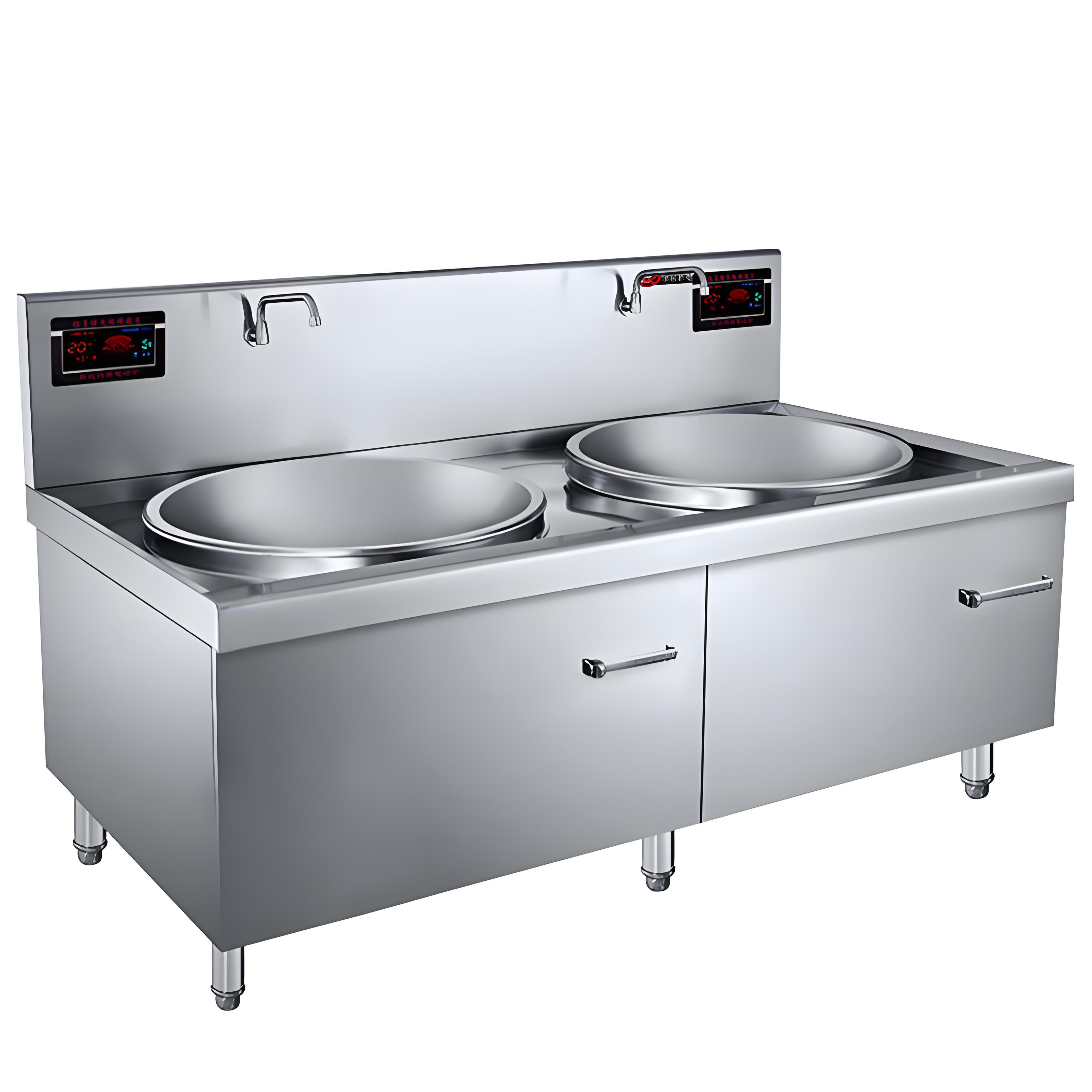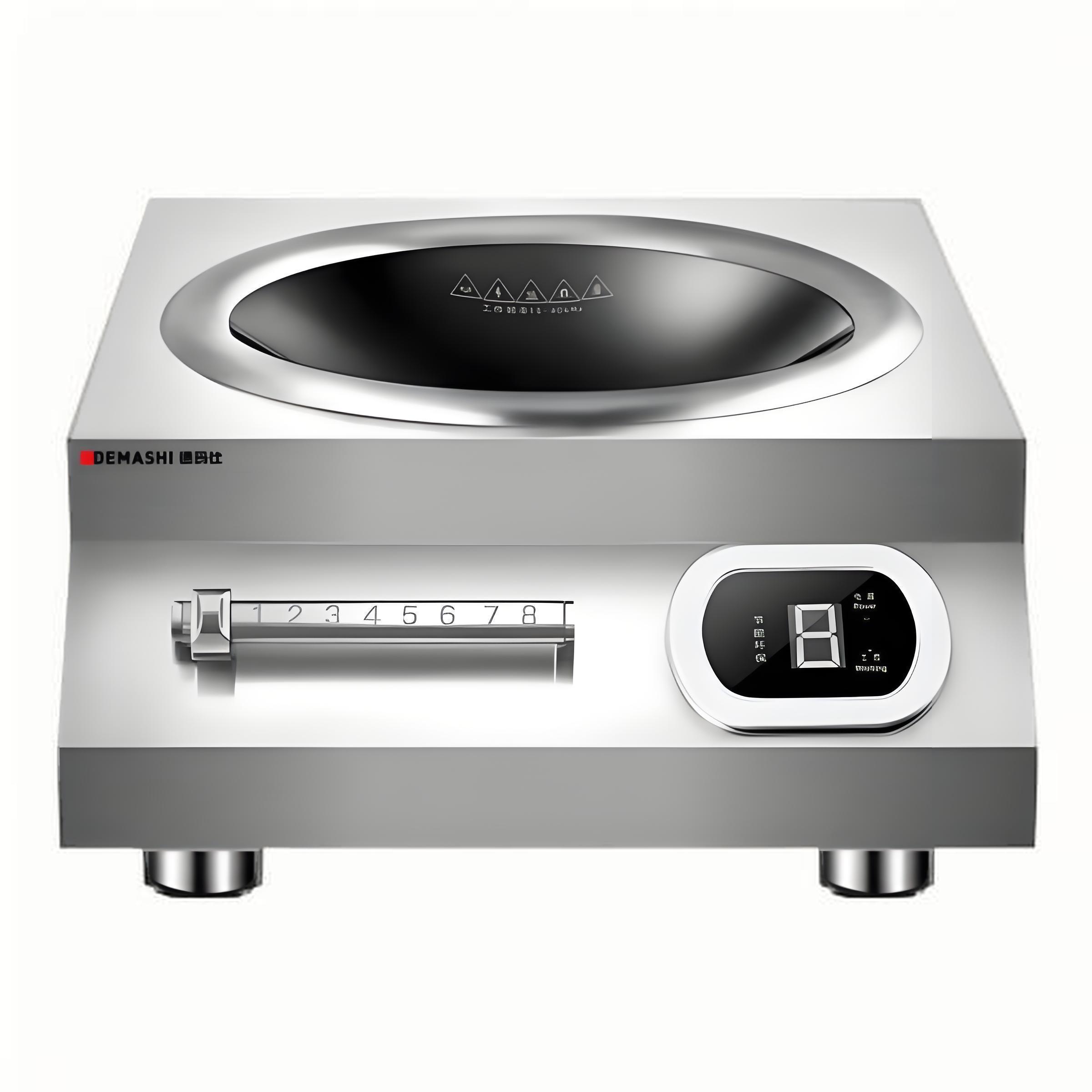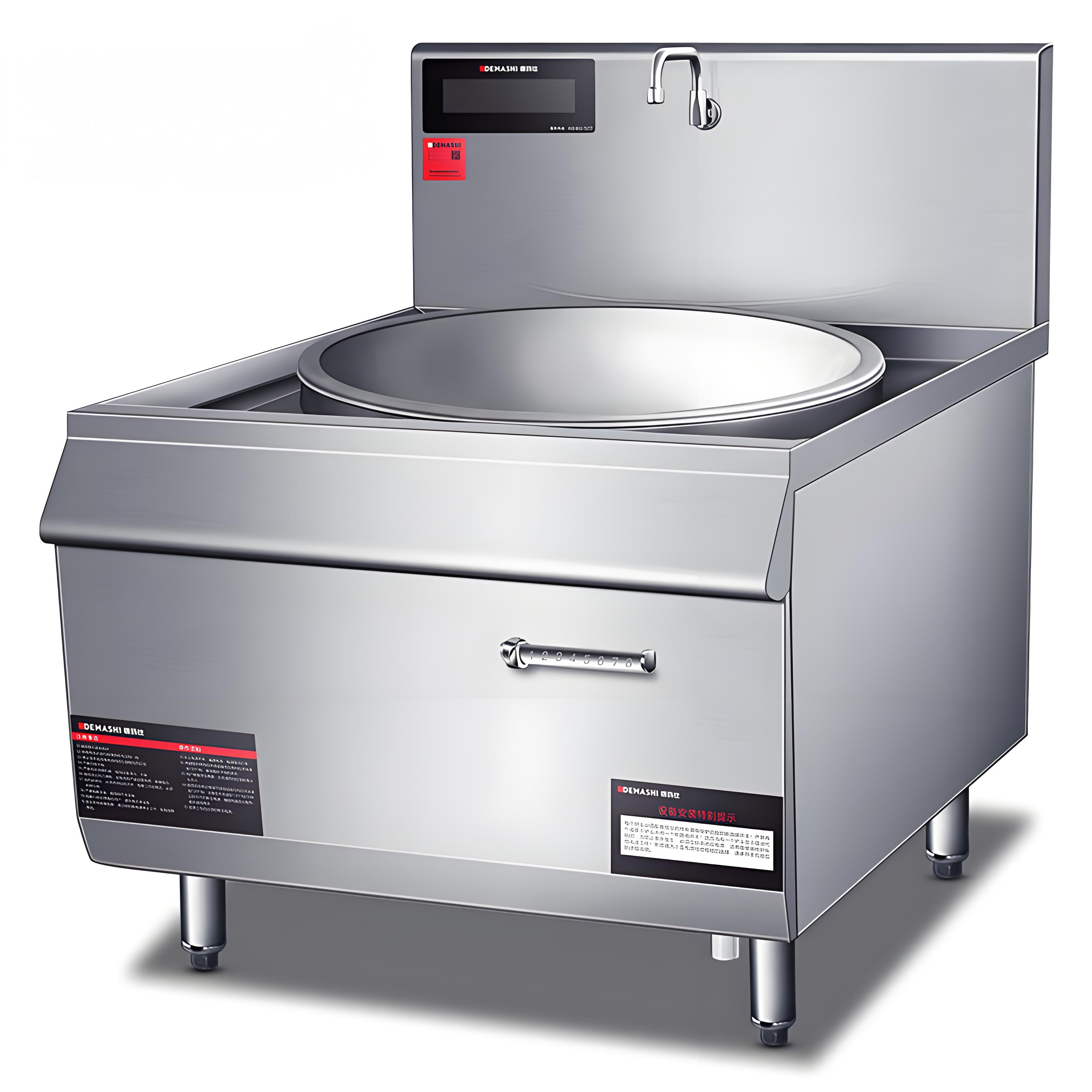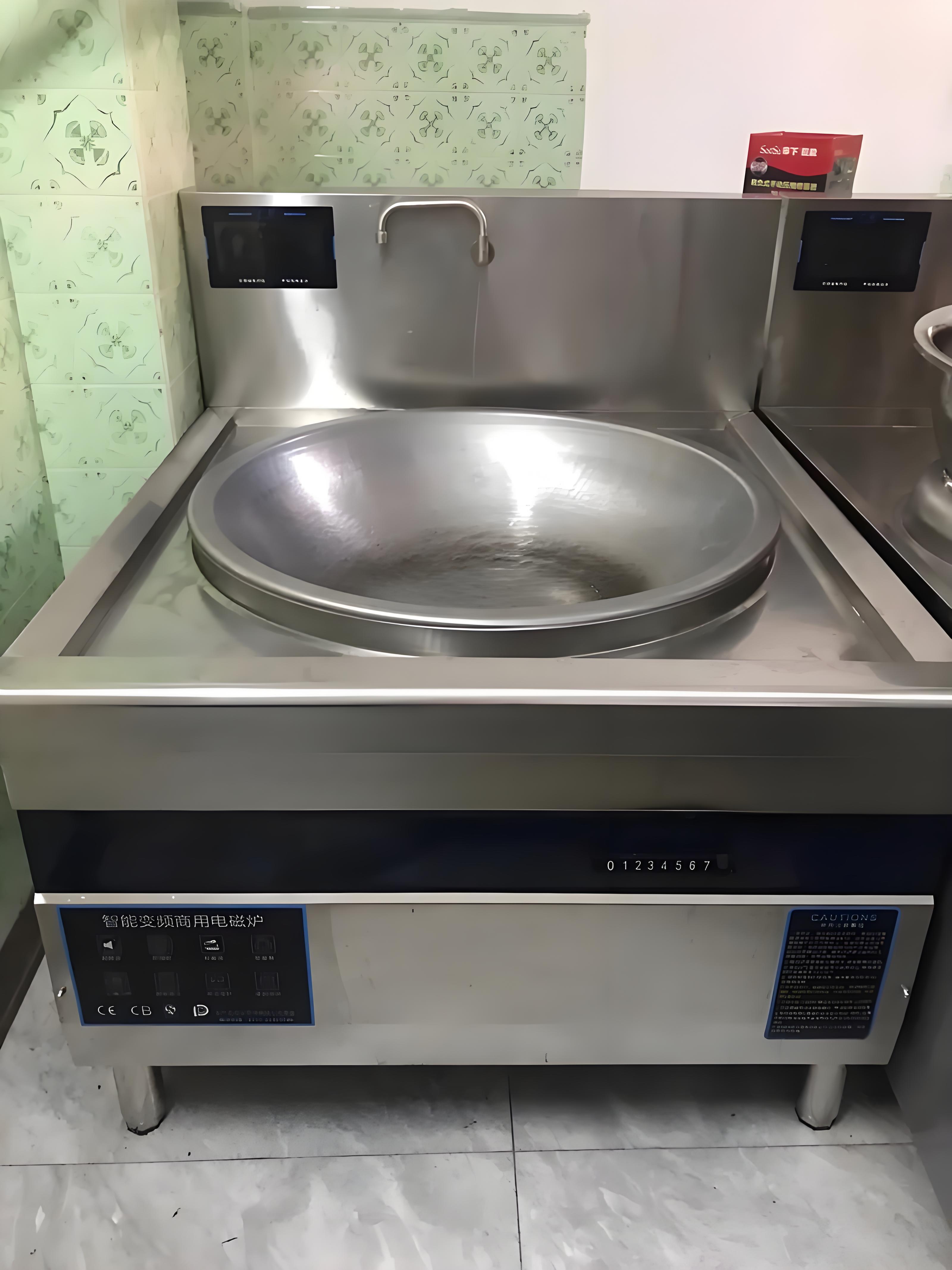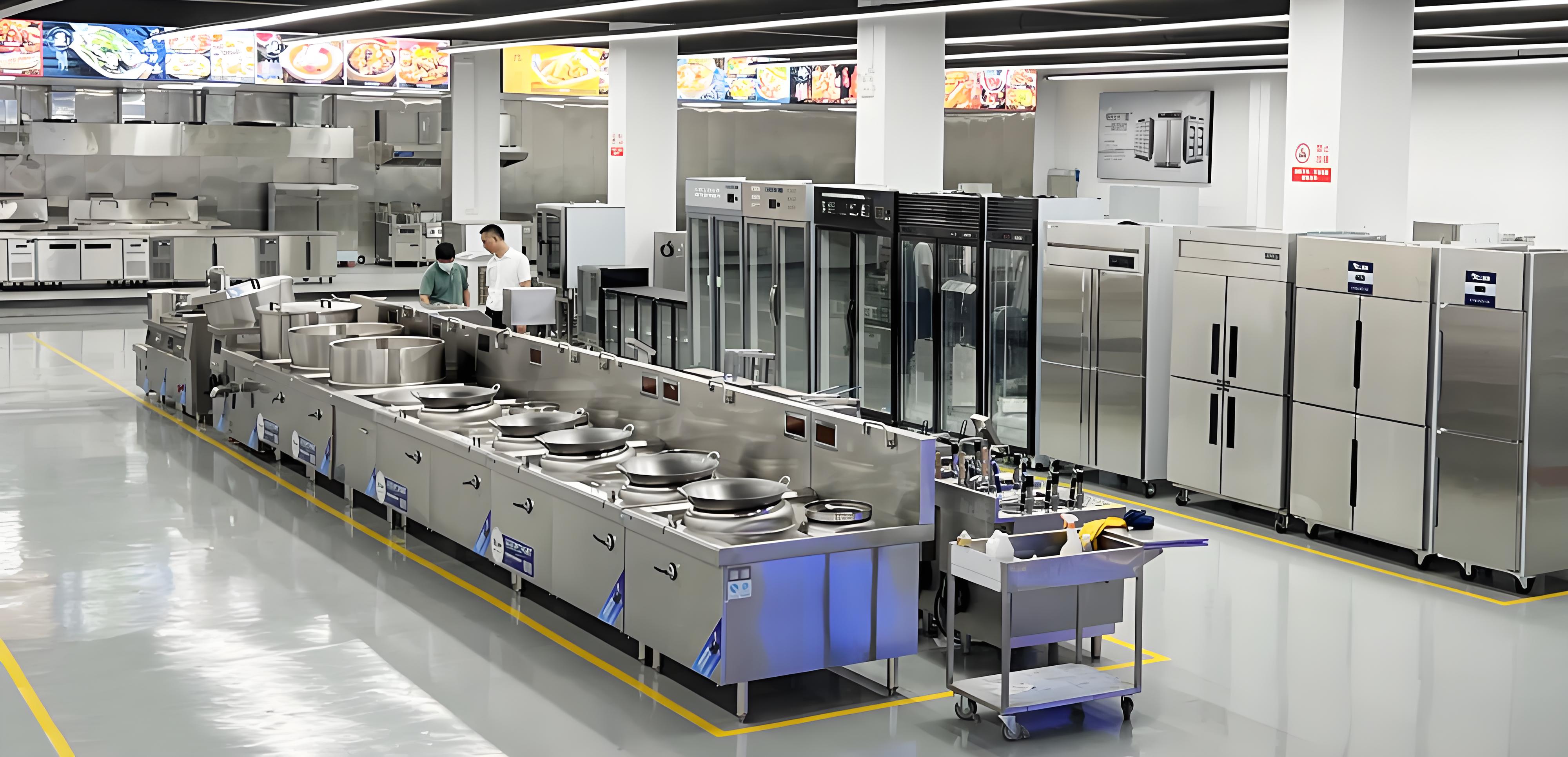Recently, new customers have raised questions about commercial induction cookers, such as: What are commercial induction cookers? Can they replace gas stoves? Can they be used for frying rice or noodles? How do you fry with them? Will the food be undercooked?
The company’s sales department recently received a call from a new customer who expressed serious doubts about high-power induction cookers. Let’s take a deeper look at commercial induction cookers, a product that has been in the Chinese market for over 30 years.

As the name suggests, commercial induction cookers are designed for commercial kitchens, such as restaurants, hotels, factories, schools, government offices, military facilities, enterprises, trains, and ships. They are particularly suitable for environments where open flames are restricted, such as department stores, basements, underground malls, railway vehicles, gas stations, and aviation settings. Unlike household induction cookers, commercial ones typically have power ratings ranging from 3KW to 35KW. Additionally, commercial induction cookers are praised as the “God of Cooking” and “green appliances” due to their energy efficiency, environmental friendliness, safety, comfort, lack of open flames, health benefits for chefs, fast heating, and quick cooking.
Advantages of Commercial Induction Cookers:
Humanization
Induction cookers produce no open flames or cooking fumes, are energy-efficient, safe, and hygienic, ensuring that elderly users and children avoid the risks of open flames. This meets the needs of household kitchens and homemakers. In hotels, they create a more humane working environment for chefs. The intelligent design of induction cookers improves cooking efficiency and saves time.
Intelligence
Intelligent features reduce the number of staff needed in the kitchen, creating a high-end, smart, safe, and hygienic environment. They facilitate human-machine interaction and increase automation. Built-in menus and command-line software make the equipment smarter and more user-friendly, enhancing its service capabilities.
Energy Efficiency
With the development of modern society and the improvement of living standards in China, there is a growing demand for energy conservation from the government, businesses, and ordinary citizens. Energy sources like oil and natural gas are increasingly used for vehicles, airplanes, and ships, leading to resource depletion. China strongly advocates for energy conservation and environmental protection. Traditional gas and oil stoves no longer meet the demands of the times.
New customers have raised concerns about the functionality of commercial induction cookers and their future prospects. The market for kitchen equipment is expected to become increasingly competitive. In the future, commercial induction cookers and other kitchen equipment will trend toward greater professionalism, standardization, regulation, automation, intelligence, and energy efficiency.
